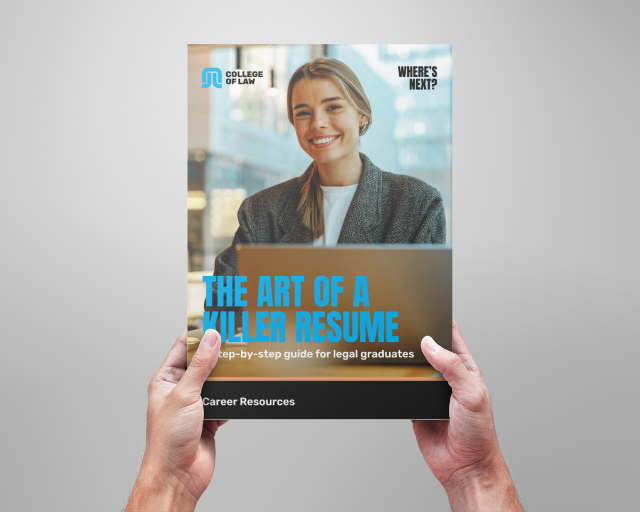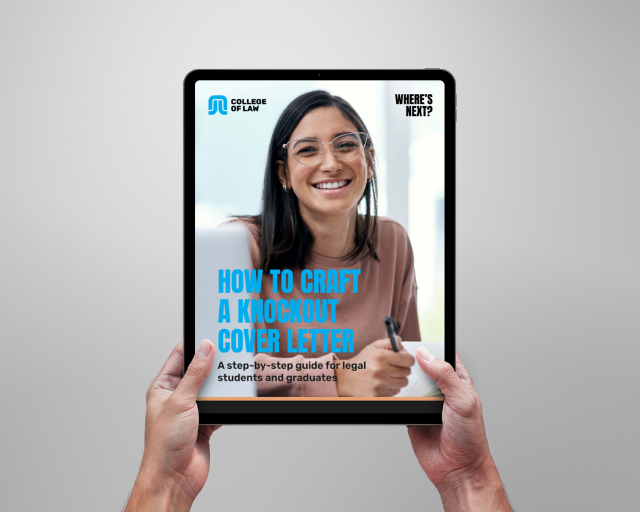Stepping into the real world of law can be a daunting prospect. From navigating complex concepts to juggling multiple matters to working to tight deadlines.
While uni upskills you in some areas, there are some lessons you won’t learn until you’re out in the field. And legal graduates often don’t see them coming.
To help you prepare for day-to-day practice, here are 7 important legal lessons you won’t learn in law school.
1. You’ll need to steer clients back into the realm of reality
What do doctors and lawyers have in common? Clients who enter their office with a pre-determined prognosis.
After a quick Google search, clients often boldly (and wrongly) think they know which area of the law relates to their case – and how they’re going to win.
Some clients can't discern fact from fiction; others fixate on legislation from other jurisdictions. So stay calm, be patient and guide your clients back on track with confidence.
2. Become better at time management to meet tight deadlines
During your studies, you’re typically given several weeks to complete an assignment.
In a firm, you’ll likely have much tighter deadlines, forcing you to juggle many urgent demands at once. And when it comes to billable hours, every minute matters.
This means you’ll need to learn how to switch between tasks and draft advice a lot faster – and under a lot more pressure – than you’re used to.
3. Sharpen your research skills sooner rather than later
At uni, your professors likely handed you a reading guide and a summary of cases when they dished out assignments.
In the commercial world, it’s not so simple. That means no prepared summary of relevant legislation for you to refer to when you set out on your own.
So you need to take research into your own hands. And if you get stumped? Don't be embarrassed to ask senior lawyers – they probably learned the same way.
4. Only refer to legitimate legal resources
No more Google or Wikipedia. When it comes to finding that all-important source of truth, you should only refer to legitimate legal resources – such as Ford and Austin & Ramsay.
These established resources should always be your go-to for referencing legislation. Why? Because they’re updated regularly, so you’ll never be caught giving outdated advice.
So become familiar with these platforms. They will be vital to your everyday work – and your success as a new legal professional.
5. Client cases are more complex than theoretical scenarios
When it comes to uni assignments, you’re usually homing in on one specific issue. Reality is much more nuanced – and so are your clients.
Say you have a client who comes to you for advice on a contract. You not only need to understand the contract itself, but also any implications that might arise from signing it.
A good lawyer needs to deeply understand the issue at hand. Predict the potential domino effect that may follow. And then communicate those complexities to their client.
6. Drafting is vital to your success as a new lawyer
You’ll soon find that drafting documents quickly and accurately is a vital skill in any legal role. Yet it’s one of the most daunting tasks for new legal professionals.
Perhaps punctuation isn't your strong suit. Or maybe you’re struggling to keep your documents concise.
Whatever the case, take the time to learn how to draft clear and compelling documents – and seek out feedback and training – to accelerate your professional development.
7. Leave legal jargon at the door
During your law degree, you needed to quickly get up to speed with all the technical terminology – and use it consistently.
But in practice, you need to meet clients where they are. And that means learning how to communicate in plain English.
So dial back the legalese – and check in with your clients to ensure they understand what you’re saying.

















































